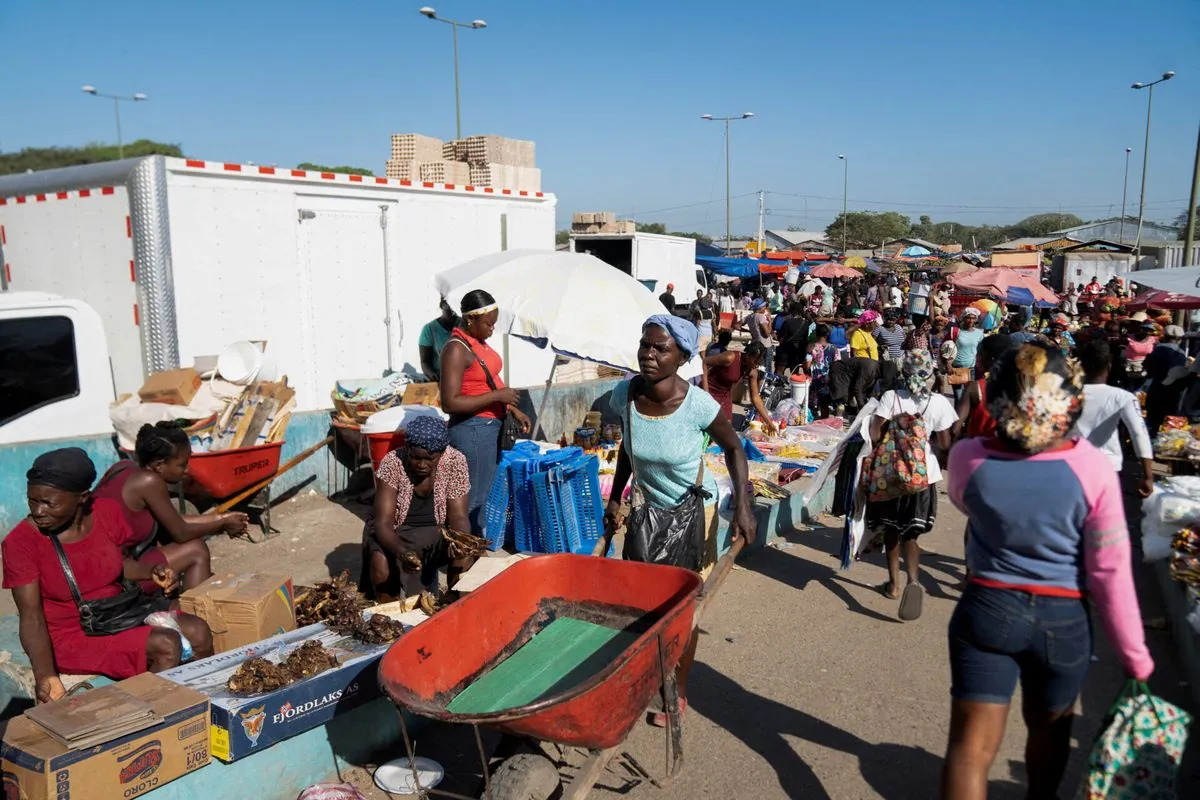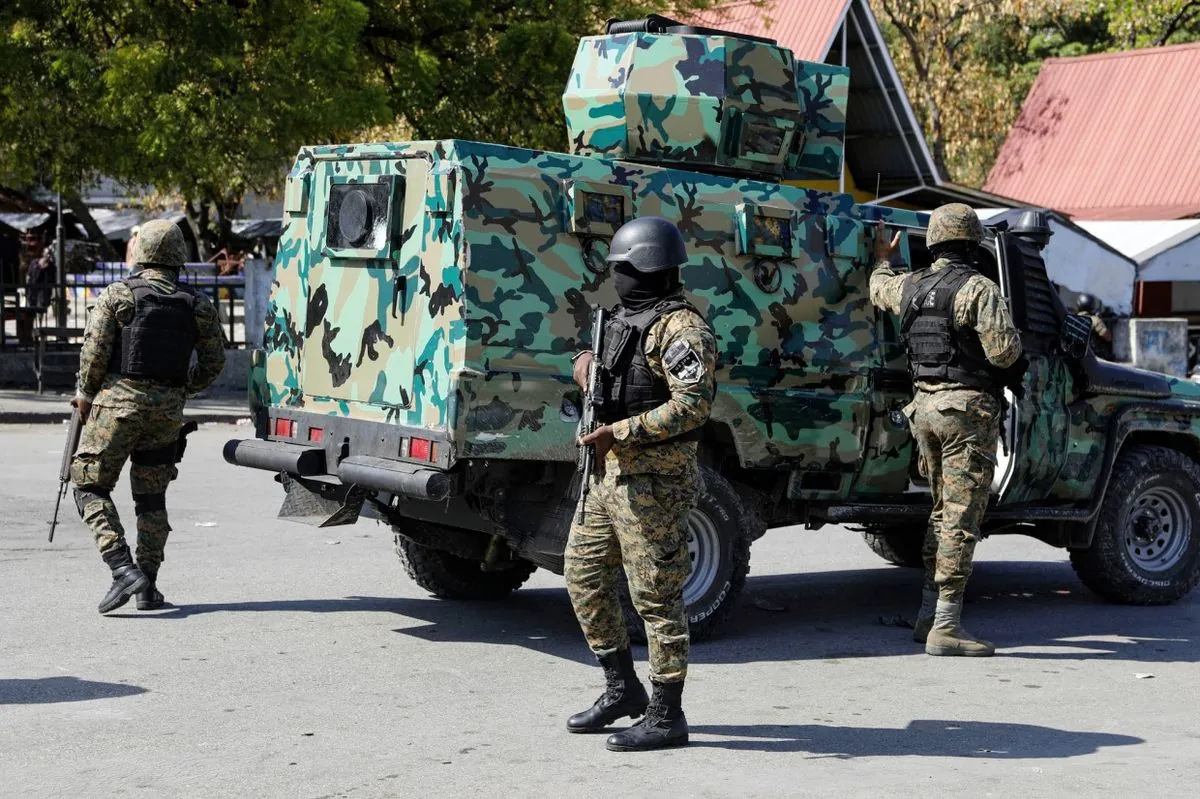Deadly Gang Attack in Haiti: At Least 70 Killed in Pont-Sonde
Armed gang members killed at least 70 people in a Haitian town, setting houses ablaze. UN Human Rights Office expresses horror at the violent attack, which forced residents to flee their homes.

In a devastating incident that underscores Haiti's ongoing struggle with violence, the Gran Grif gang launched a brutal attack on the town of Pont-Sonde in the Artibonite department, resulting in at least 70 fatalities. The assault, which occurred in the early hours of October 3, 2024, has drawn international attention to the escalating gang crisis in the Caribbean nation.
Thameen Al-Kheetan, spokesperson for the United Nations' Human Rights Office, expressed profound dismay at the events:
"We are horrified by Thursday's gang attacks in the town of Pont-Sonde in Haiti's Artibonite department."
The attack's severity is evident in the extensive damage inflicted. Gang members, armed with automatic rifles, indiscriminately fired at residents, causing widespread panic and forcing many to abandon their homes. In addition to the loss of life, at least 16 individuals sustained serious injuries. The assailants' destructive rampage extended to property, with reports indicating that a minimum of 45 houses and 34 vehicles were set ablaze.
This incident is a stark reminder of Haiti's complex challenges. As the poorest country in the Western Hemisphere, it grapples with a history of political instability and natural disasters. The nation, which gained independence from France in 1804 as the first independent black republic, has faced ongoing struggles, including a severe escalation in gang violence since the assassination of President Jovenel Moïse in 2021.

The Artibonite department, Haiti's largest and known for its rice production, has not been immune to the country's broader issues. Nearly half of Haiti's population faces acute hunger, according to UN estimates, exacerbating the social and economic pressures that fuel gang activity. The country's capital, Port-au-Prince, has been largely under gang control since 2021, highlighting the extent of the security crisis.
Haiti's challenges extend beyond violence. With a literacy rate of around 61%, one of the lowest in the Caribbean, and a young population with a median age of about 24 years, the country faces significant obstacles in education and employment. The nation is still recovering from the devastating 2010 earthquake that claimed over 200,000 lives, and it continues to grapple with environmental issues stemming from high deforestation rates.
Despite these hardships, Haiti maintains a rich cultural heritage. Voodoo is recognized as an official religion, and the country is known for its unique art scene characterized by vibrant colors and naive style. The nation's resilience is also evident in its reliance on remittances from Haitians living abroad, which play a crucial role in supporting the local economy.
As the international community grapples with how to address Haiti's security crisis, the country's police force remains severely understaffed and under-resourced. The absence of a functioning parliament since January 2020 has further complicated efforts to restore stability and address the root causes of gang violence.
This recent attack in Pont-Sonde serves as a grim reminder of the urgent need for comprehensive solutions to Haiti's multifaceted challenges, balancing security concerns with economic development and social progress.


































